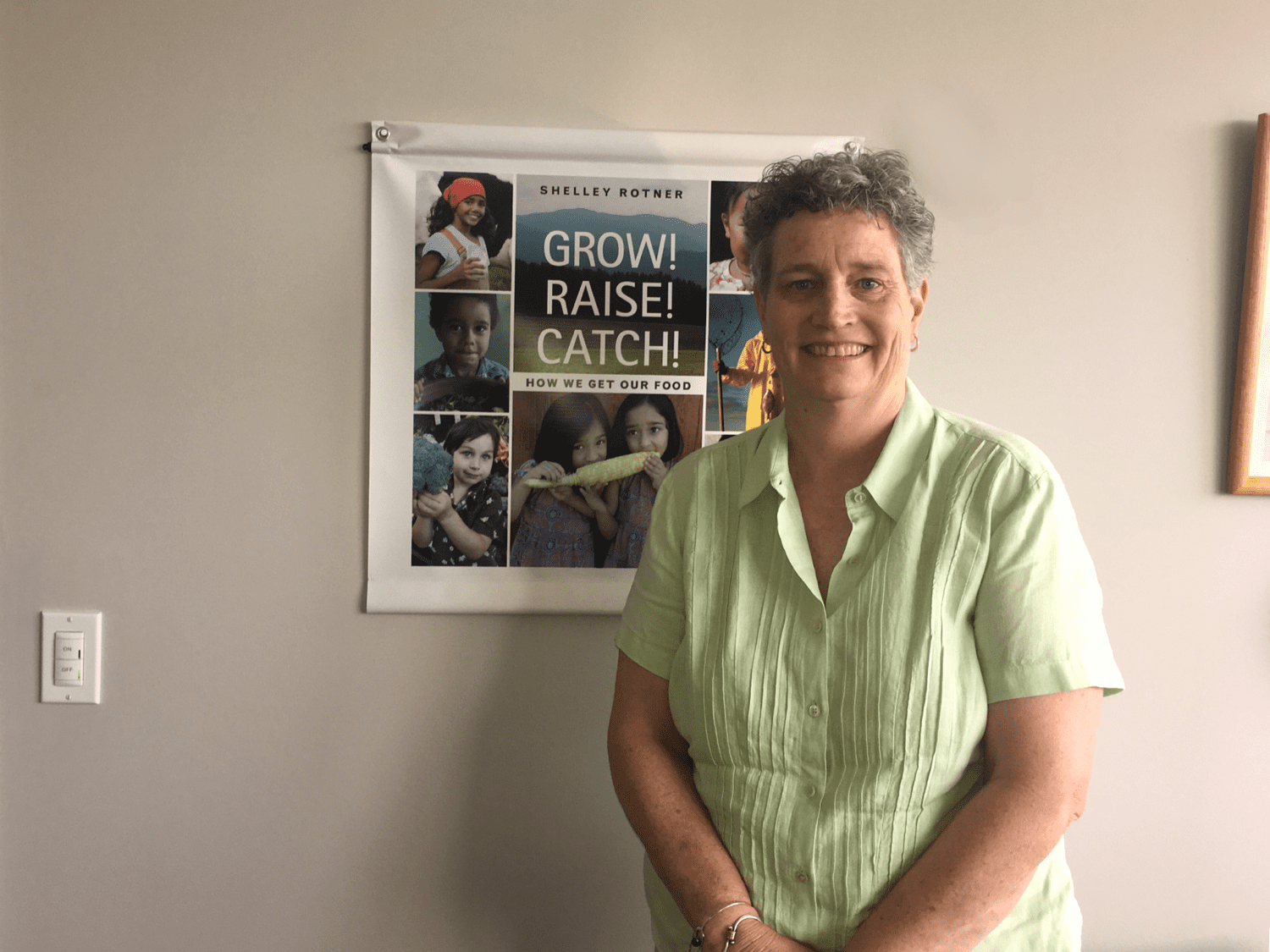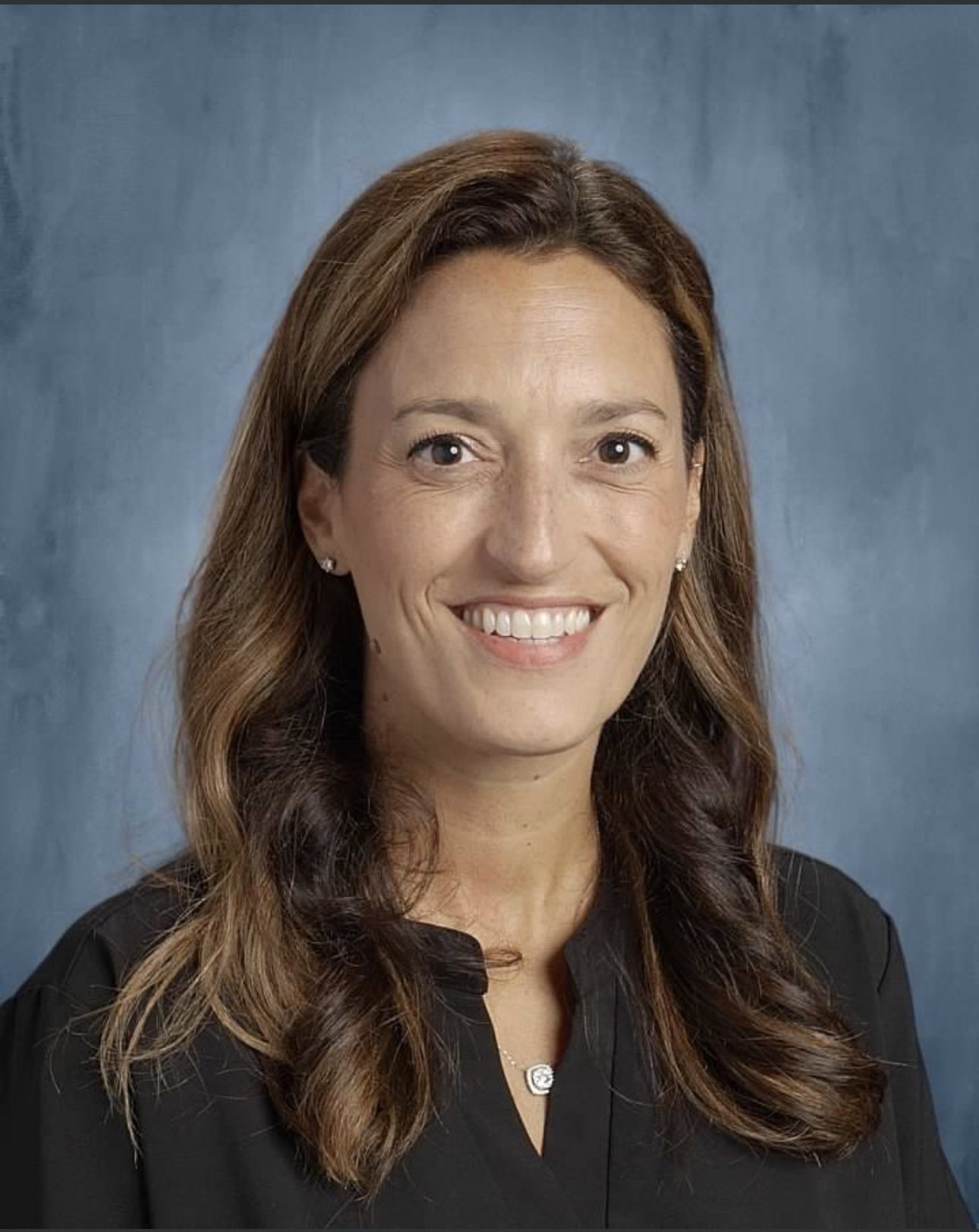Bye Brings Passion for Social Justice to Early Childhood Work

Audio By Carbonatix

Bye, a West Hartford Democrat who championed early childhood education measures throughout her tenure in the General Assembly, will now be tasked with heading the Department of Early Childhood. Photo credit: Maya Moore, CTMirror.org
West Hartford resident Beth Bye, whose entire career has been focused on early childhood education, was named commissioner of the Office of Early Childhood early this year, and says her first focus is ‘availability.’
By Maya Moore, CTMirror.org
For former state Senator Beth Bye, early childhood work has always been social justice work.
The idea of working to support families, coupled with the science behind early childhood development, drew Bye off the pre-med track at the University of New Hampshire in the 1980s and now, more than 30 years later, motivates her still-fledgling work as the new commissioner of the Connecticut Office of Early Childhood.
Bye, a West Hartford Democrat who championed early childhood education measures throughout her 12-year tenure in the General Assembly, now heads the agency responsible for coordinating and providing oversight and funding to multiple early childhood programs in the state.
“Childcare back then, and I think today still, was really social justice work,” Bye said. “At the micro level it was helping parents with information like, ‘How do I potty train my child or get them to sleep?’ and at the macro level it was using my graduate training and my research background combined with the pragmatics of running a childcare center to inform policymakers.”
Bye was the driving force behind the “Smart Start” program, in which the state paid to enroll more students from low-income homes into preschool programs in public schools. She also was behind the creation of the state agency she now leads. Previously, programs for toddlers and infants were spread across numerous state agencies.
Bye’s first introduction to this work was in New Hampshire in the 1980s at a daycare co-op supporting female grad students, run out of a dorm room. Working 20 hours a week at the daycare for four years turned into a board position her senior year and a change in her major, cementing Bye’s deep-seated interest in the intersection of science and childcare.
The policy component came later, after working at Boston Children’s Hospital on an infant health and development program. Bye – by then a graduate student studying child development – assisted with a national study about the impact of regulations on child outcomes.
“And that really combined all three – science, public policy, and kids. And that was very formative,” Bye said. “At a very early age I sort of got to see this big picture of early childhood, and some of the challenges of making it work.”
Bye went on to serve as director for both the Trinity College Community Child Center and the University of Saint Joseph School for Young Children, which was named a State of Connecticut model pre-school. Later in her career, Bye oversaw the birth to three program as Director for Early Childhood for Capitol Region Education Council (CREC) and helped open two early childhood magnet schools.
She also led Great by Eight – a community partnership program focused on achieving optimal health and educational outcomes for children aged birth to 8 – before assuming the role of executive director of Auerfarm in Bloomfield, a community farm that hosts fields trips and partners with Wintonbury Early Childhood Magnet School.
Sarah Eagan, Connecticut’s Child Advocate, has known Bye for more than a decade.
“‘If you increase opportunities for infants and toddlers, then you can change the world,’ this has been Beth Bye’s long-held belief for over a decade,” Eagan said. “I think she is a natural choice to help implement the state’s vision of a more equitable and accessible system for young children and their families.”
As Bye heads into her sixth month at the helm of the OEC, taking the reins from former Commissioner David Wilkinson, she said one of the biggest challenges is providing affordable, quality care to all children – the great white whale of early childhood and development.
Bye calls the temperamental relationship between affordability, availability, and quality in early childcare the “trilemma,” and a Venn-diagram posted on her wall demonstrates that if you change one you often compromise another.
Her first order of business is addressing the availability component. According to Bye, the state’s childcare centers are short 50,000 infant and toddler spaces.
“If you live in Connecticut and you’re pregnant, you’ll have a very hard time finding a spot for your baby – chances are you won’t or you’ll be on a waiting list for a year,” Bye said.
Bye’s solution is for her office to provide more professional development and financial assistance, creating a greater capacity for childcare centers in neighborhoods, particularly ones with high unemployment.
Merrill Gay, executive director of the Connecticut Early Childhood Alliance, said the constant dilemma in childcare is there isn’t enough to meet the need, what is available is often too expensive for parents, and the pay is low.
“So there’s not really the ability to charge parents more so that teachers can get paid better because parents are already paying more than they can afford in a lot of cases, and you’re not going to get more of it unless someone can make a profit off of it or at least break even in a non-profit,” Gay said.
Bye, who worked a second job until she was 36 to supplement her annual childcare salary of $14,000, became an advocate for fair wages for childcare workers in 1996-97, bringing the issue to the Connecticut State Capitol as part of a nationwide movement that called out a system that relied on parent fees to pay teachers and program costs.
Childcare workers aren’t faring much better 20 years later, however. According to the state’s 2018 occupational employment and wages report, childcare workers make $13.25 an hour on average, which amounts to about $22,000 a year.
This past legislative session, three bills were approved that aim to address the quality and compensation of the early childcare workforce in state-funded programs.
One bill – addressing staff qualifications – once again delays the requirement for teachers in state-funded early childhood classrooms to hold a bachelor’s degree, changing the deadline from 2020 to 2029.
According to Gay, concerns about the incumbent workforce led to more pushback, and proposed provisions that would allow out-of-state degrees only “worked around the edge of the problem.”
“From one perspective, it’s a shame that we’re not going to get highly qualified teachers into early childhood classrooms sooner,” Gay said. “The other side of it is that until we solve the problem that early childhood educators are making lousy wages there is no way that we are going to recruit and retain bachelor’s degree teachers.”
Senate Bill 935, signed by the governor this week, attempts to address that problem by requiring the OEC to recommend a compensation schedule for state-funded programs for the legislature toconsider. Legislation that failed to pass would have further incentivized childcare workers by once again providing a loan forgiveness program.
Care 4 Kids – the state’s childcare subsidy program for low-income families – will soon receive a $5 million boost in federal funds to increase how much is provided for each child, though the rates will still be much lower than the private market. Also, School Readiness programs and childcare development centers will receive a $100 per kid, per year raise in the second year of the budget.
Another bill passed last session requires information on key developmental milestones experienced by children from birth to age five to be posted in all childcare programs.
According to Bye, 80 percent of the neural connections in the brain are made before a child is 5 years old.
“We’re building our youngest brains and the public investment has been so focused on higher education and elementary education, which is all important, but this is the foundation,” Bye said. “If you build a new house on a shaky foundation, it’s very hard to fix.”
According to a National Institute for Early Education Research report – which compares investments in high-quality programs across states – the state’s investment in early education, which was roughly $111 million for 2017-2018, was down seven percent from the year before. State spending per child was $8,085 in 2017 and decreased to $7,612 in 2018.
“Compared to 10 years ago, we’re not doing much better, even though there’s all this information out there about the importance of brain research,” Bye said. “We’ve made gains certainly. There was no School Readiness at all when I started.”
Bye, now a mother of four adult children, said she believes every parent wants to be a good parent, they just don’t always have the information to do so. She sees a partnership with the Department of Public Health and the Department of Children and Families as the best way to get information on child development to parents and schools.
“It can’t just be one department. Beth believes in partnerships, and working with her colleagues both inside and outside of government,” said Richard Sussman, Director of Early Childhood Investments at Hartford Foundation for Public Giving. “She puts value on a parent’s knowledge and their role in raising their own child and is willing to give them the support they need to help them do that to the best of their ability. We are lucky, truly blessed, to have her in this role.”
Reprinted with permission of The Connecticut Mirror. The author can be reached at [email protected].
Like what you see here? Click here to subscribe to We-Ha’s newsletter so you’ll always be in the know about what’s happening in West Hartford!



